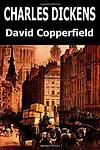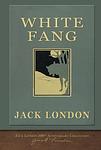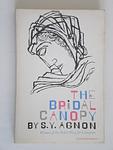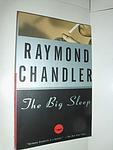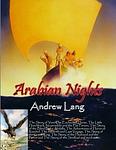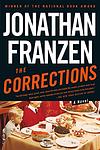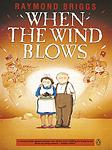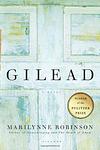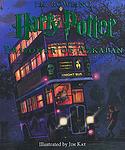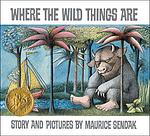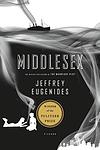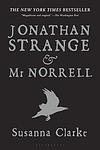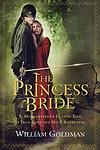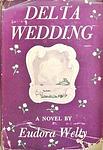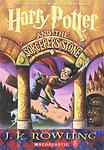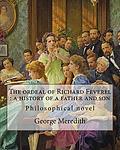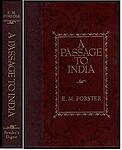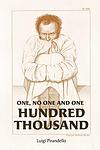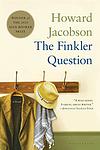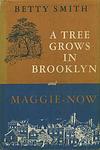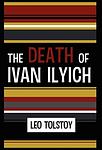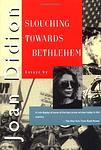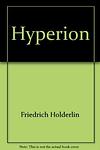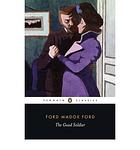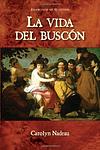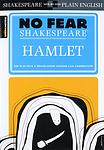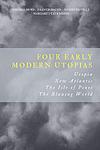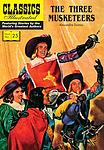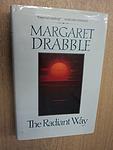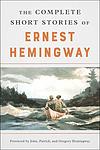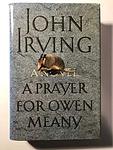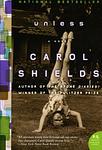Our Users' Favorite Books of All Time
This is one of the 300 lists we use to generate our main The Greatest Books list.
-
Sister Carrie by Theodore Dreiser
The novel follows a young country girl who moves to the big city where she starts realizing her own American Dream by first becoming a mistress to men she perceives as superior and later as a famous actress. It is a portrayal of the realities of the modern city and the complexities of the modern world, illustrating the influence of consumer culture on the individual. Despite her moral decline, the protagonist's rise to fame seems to defy the conventional social norms and moral values, making the novel a notable instance of naturalist literature.
The 414th Greatest Book of All Time -
The Vicar of Wakefield by Oliver Goldsmith
"The Vicar of Wakefield" follows the life of Dr. Primrose, a vicar living happily with his wife and six children in an affluent English parish. However, their lives take a drastic turn when they lose their fortune and are forced to move to a new, more modest parish. Despite facing numerous hardships, including the imprisonment of Dr. Primrose and the abduction of his daughter, the family remains resilient, relying on their faith and love for each other to overcome adversity. The story is a classic portrayal of family values, resilience, and the triumph of virtue over vice.
The 412th Greatest Book of All Time -
Black Rain by Masuji Ibuse
The novel is a poignant and detailed account of the aftermath of the atomic bombing of Hiroshima, as experienced by a Japanese family. Through the diary entries of a survivor and the narrative of the days that follow, the book explores the devastating impact of the bomb on the city's inhabitants, their struggle with radiation sickness, and the societal stigma they face. It delves into the physical and psychological trauma inflicted by the event, painting a somber picture of the human cost of war and the long-lasting effects of nuclear weapons on both individuals and communities.
The 2114th Greatest Book of All Time -
David Copperfield by Charles Dickens
This novel follows the life of its titular protagonist from his childhood to maturity. Born to a young widow, David endures a difficult childhood when his mother remarries a harsh and abusive man. After his mother's death, he is sent to a boarding school before being forced into child labor. As he grows, David experiences hardship, love, and loss, all the while meeting a colorful array of characters. The novel is a journey of self-discovery and personal growth, showcasing the harsh realities of 19th-century England.
The 45th Greatest Book of All Time -
Mrs. Dalloway by Virginia Woolf
The novel chronicles a day in the life of Clarissa Dalloway, a high-society woman in post-World War I England, as she prepares for a party she is hosting that evening. Throughout the day, she encounters various characters from her past, including a former suitor and a shell-shocked war veteran. The narrative jumps back and forth in time and in and out of different characters' minds, exploring themes of mental illness, existentialism, and the nature of time.
The 37th Greatest Book of All Time -
Voss by Patrick White
Set in 19th-century Australia, the novel follows a German explorer, Voss, as he leads a doomed expedition into the outback. Parallel to this, Voss develops a romantic relationship with Laura Trevelyan, a young woman he meets before his departure. Despite their physical separation, their spiritual and emotional connection deepens as Voss's journey becomes increasingly perilous. The narrative explores themes of obsession, the human condition, and the dichotomy between civilization and wilderness.
The 588th Greatest Book of All Time -
Howards End by E. M. Forster
This novel explores class relations and conflicting values in turn-of-the-century England. The narrative revolves around three families: the wealthy, capitalist Wilcoxes; the cultured, idealistic Schlegels; and the lower-middle class Basts. As their lives intertwine, the story grapples with themes of wealth, love, and death, and the struggle for personal connection in an increasingly impersonal society. The titular "Howards End" is a country home, and it becomes a symbol of England's past, present, and future.
The 158th Greatest Book of All Time -
White Fang by Jack London
The novel tells the story of a wolf-dog hybrid named White Fang, who endures harsh conditions in the Yukon during the 19th-century Klondike Gold Rush. The narrative follows White Fang's journey from a life in the wild to domestication. He experiences cruelty and brutality from both nature and humans, but eventually finds kindness and compassion with a man who rescues him from a dog-fighting ring. The book explores themes of survival, nature versus nurture, and redemption.
The 696th Greatest Book of All Time -
Brave New World by Aldous Huxley
Set in a dystopian future, the novel explores a society where human beings are genetically bred and pharmaceutically conditioned to serve in a ruling order. The society is divided into five castes, each with its specific roles. The narrative follows a savage who rejects the norms of this new world order and struggles to navigate the clash between the values of his upbringing and the reality of this technologically advanced, emotionless society. His resistance prompts a deep examination of the nature of freedom, individuality, and happiness.
The 42nd Greatest Book of All Time -
The Family Of Pascual Duarte by Camilo José Cela
The book is a harrowing narrative of a man from rural Spain, chronicling his life marked by violence and hardship in the early 20th century. Written as a series of letters from prison, the protagonist recounts his tumultuous journey through a series of misfortunes, familial strife, and brutal personal impulses that lead him down a path of murder and eventual execution. The novel delves into themes of fate, existential despair, and the brutal realism of peasant life, offering a stark portrayal of a man struggling against the inexorable pull of his own tragic nature.
The 4605th Greatest Book of All Time -
The Bridal Canopy by Shmuel Yosef Agnon
The novel is a rich tapestry of 19th-century Jewish life in Eastern Europe, following the picaresque journey of Reb Yudel, a poor, pious Jew, as he travels through Galician villages in search of suitable husbands for his three daughters. Along the way, he encounters a vivid cast of characters and experiences a series of adventures that reveal the customs, struggles, and faith of the Jewish communities of that era. The narrative, imbued with religious and folkloric elements, offers a blend of humor, irony, and profound insight into human nature and divine providence, painting a nostalgic picture of a bygone world.
The 4606th Greatest Book of All Time -
In Search of Lost Time by Marcel Proust
This renowned novel is a sweeping exploration of memory, love, art, and the passage of time, told through the narrator's recollections of his childhood and experiences into adulthood in the late 19th and early 20th century aristocratic France. The narrative is notable for its lengthy and intricate involuntary memory episodes, the most famous being the "madeleine episode". It explores the themes of time, space and memory, but also raises questions about the nature of art and literature, and the complex relationships between love, sexuality, and possession.
The 6th Greatest Book of All Time -
The Lost Honour of Katharina Blum by Heinrich Böll
"The Lost Honour of Katharina Blum" is a story about a young woman who becomes the target of a media smear campaign after she falls in love with a man who is suspected of being a political radical. The media's relentless invasion of her privacy and the negative portrayal of her character lead to tragic consequences, highlighting the destructive power of sensationalist journalism. The novel is also a critique of the political climate in Germany during the 1970s.
The 1115th Greatest Book of All Time -
If This Is a Man by Primo Levi
This book is a deeply moving and insightful memoir of a survivor of Auschwitz, a Nazi concentration camp during World War II. The author, an Italian Jew, provides a detailed account of his life in the camp, the brutal conditions, the dehumanization, and the struggle for survival. The narrative is a profound exploration of the human spirit, resilience, and the will to live, despite unimaginable horror and suffering. It also raises profound questions about humanity, morality, and the capacity for evil.
The 251st Greatest Book of All Time -
Gentlemen Prefer Blondes: The Illuminating Diary of a Professional Lady by Anita Loos
This book is a satirical novel that follows the adventures of a blonde flapper named Lorelei Lee, who uses her looks and charm to climb the social ladder. Lorelei, originally from Little Rock, Arkansas, is a materialistic and somewhat naive woman, who values men for their wealth and status. The story, presented as Lorelei's diary, humorously explores themes of gender, class, and the American pursuit of wealth and status in the early 20th century.
The 749th Greatest Book of All Time -
The Big Sleep by Raymond Chandler
In this classic detective novel, a private investigator is hired by a wealthy family to resolve a blackmail issue involving the younger daughter. As he delves deeper into the case, he uncovers a web of deceit, murder, and organized crime. The detective's investigation is further complicated by his growing attraction to the older daughter, adding a layer of personal involvement to an already complex case. The novel is renowned for its gritty depiction of 1930s Los Angeles and its sharp, witty dialogue.
The 100th Greatest Book of All Time -
Waverley by Sir Walter Scott
Set during the Jacobite uprising of 1745, this historical novel follows the story of Edward Waverley, an English gentleman who is sent to Scotland by his father. There, he becomes embroiled in the rebellion, torn between his loyalty to his family and the king, and his sympathy for the Jacobite cause. The novel explores the complexities of politics, culture, and identity during this turbulent period in Scottish history.
The 1069th Greatest Book of All Time -
One Thousand and One Nights by Unknown
This is a collection of Middle Eastern folk tales compiled during the Islamic Golden Age. The stories are told by a young woman, who must weave a new tale each night for her husband, a king, to delay her execution. The tales are filled with magic, adventure, love, and betrayal, and include well-known stories such as "Aladdin's Wonderful Lamp", "Ali Baba and the Forty Thieves", and "The Seven Voyages of Sinbad the Sailor".
The 66th Greatest Book of All Time -
Some Prefer Nettles by Junichiro Tanizaki
"Some Prefer Nettles" is a novel that explores the complexities of a failing marriage in early 20th century Japan. The main characters, a husband and wife, are both aware of their fading love for each other and are drawn to other people, but are hesitant to divorce due to societal pressures and the welfare of their young son. The novel also delves into the cultural tension between traditional Japanese customs and the encroaching influence of Western culture.
The 958th Greatest Book of All Time -
The Corrections by Jonathan Franzen
The novel revolves around the lives of the Lambert family, an old-fashioned midwestern couple and their three adult children. The parents, Alfred and Enid, are dealing with Alfred's Parkinson's disease and their own marital problems, while their children are each facing their own personal and professional crises. The narrative explores the themes of family dynamics, societal expectations, and the struggles of modern life. The story climaxes with the family's last Christmas together at their childhood home.
The 238th Greatest Book of All Time -
A Bend in the River by V. S. Naipaul
"A Bend in the River" is a novel that follows an Indian man, Salim, who moves from the East Coast of Africa to the heart of the continent to open a store in a small, remote town at a bend in the river. The book explores the changes that occur in the town as it evolves from a sleepy outpost to a bustling city. It also delves into Salim's personal struggles and the challenges he faces in adapting to a rapidly changing society, all set against the backdrop of post-colonial Africa.
The 335th Greatest Book of All Time -
Danny The Champion Of The World by Roald Dahl
In this heartwarming tale, a young boy named Danny embarks on an extraordinary adventure with his father. Living in a cozy gypsy caravan behind their country petrol station, Danny's life takes an unexpected turn when he discovers his father's secret passion for poaching pheasants. As they devise a clever plan to outsmart the wealthy landowner, Danny becomes the unexpected hero of the village, showcasing the power of determination, love, and the bond between father and son.
The 1390th Greatest Book of All Time -
Saturday Night and Sunday Morning by Alan Sillitoe
The novel provides a gritty, realistic portrayal of working-class life in post-war British society, as seen through the eyes of a rebellious young factory worker in Nottingham. The protagonist, a hard-drinking, womanizing anti-hero, navigates life's challenges and societal expectations, while seeking personal freedom and meaning beyond the mundanity of his labor-intensive job. His weekend binges and love affairs contrast starkly with the stifling conformity of his weekday routines, reflecting the broader social and cultural tensions of the time.
The 701st Greatest Book of All Time -
When The Wind Blows by Raymond Briggs
The book is a poignant graphic novel that explores the lives of an elderly British couple, James and Hilda Bloggs, who live in the countryside and follow government protocols in preparation for a nuclear attack. Despite their innocence and faith in authorities, the couple's simple and touching efforts to protect themselves are rendered futile against the devastating and misunderstood effects of nuclear fallout. The narrative combines gentle humor with a powerful critique of the nuclear age, illustrating the tragic human cost of war and the often misguided trust in government protection, ultimately leaving a lasting impression on the reader about the fragility of life and the horrors of nuclear conflict.
The 2227th Greatest Book of All Time -
Things Fall Apart by Chinua Achebe
This novel explores the life of Okonkwo, a respected warrior in the Umuofia clan of the Igbo tribe in Nigeria during the late 1800s. Okonkwo's world is disrupted by the arrival of European missionaries and the subsequent clash of cultures. The story examines the effects of colonialism on African societies, the clash between tradition and change, and the struggle between individual and society. Despite his efforts to resist the changes, Okonkwo's life, like his society, falls apart.
The 50th Greatest Book of All Time -
Gilead by Marilynne Robinson
The novel is a series of reflections written by an elderly dying pastor in 1956 in Gilead, Iowa, as a letter to his young son. The protagonist, John Ames, shares his family history, personal thoughts, and the struggles of his life, including the tension with his namesake and godson who returns to their small town. The book explores themes of faith, regret, and the beauty of existence, providing a profound meditation on life and death.
The 467th Greatest Book of All Time -
The Complete Sherlock Holmes by Arthur Conan Doyle
This book is a comprehensive collection of all 56 short stories and four novels centered around the brilliant detective, Sherlock Holmes, and his loyal friend, Dr. John Watson. Set in late 19th and early 20th century London, the stories follow Holmes as he uses his exceptional deductive reasoning and astute observation skills to solve a variety of complex and intriguing mysteries. From murder and theft to espionage and the supernatural, no case is too challenging for this iconic detective.
The 234th Greatest Book of All Time -
Children of Gebelawi by Naguib Mahfouz
"Children of Gebelawi" is a novel that allegorically presents the stories of Moses, Jesus, and Mohammed through the lives of characters in a Cairo neighborhood. The patriarch, Gebelawi, has five children, each representing a different prophet or religious figure, and their struggles mirror the religious and philosophical conflicts of the 20th century. The book explores themes of power, faith, and redemption, and it sparked controversy upon publication due to its portrayal of sacred figures.
The 1168th Greatest Book of All Time -
Harry Potter And The Prisoner Of Azkaban by J. K Rowling
In this third installment of the popular fantasy series, the protagonist enters his third year at a magical school, only to find out that a notorious prisoner has escaped from a supposedly inescapable prison and is believed to be after him. As the school year progresses, he learns more about his parents' history, uncovers secrets about his professor, and discovers a magical map. He also learns to summon a powerful defensive spell, confronts the escaped prisoner, and uncovers the truth about his parents' betrayal and death. The book ends with him saving an innocent life and learning a valuable lesson about the complexity of human nature and the importance of true friendship.
The 445th Greatest Book of All Time -
Where the Wild Things Are by Maurice Sendak
A young boy named Max, dressed in his wolf costume, wreaks such havoc through his household that he is sent to bed without his supper. In his room, a mysterious, wild forest and sea grows out of his imagination, and Max sails to the land of the Wild Things. The Wild Things are fearsome-looking monsters, but Max conquers them by “staring into their yellow eyes without blinking once”, and he is made the king of all wild things. However, he soon finds himself lonely and homesick and returns home to his bedroom where he finds his supper waiting for him, still hot.
The 418th Greatest Book of All Time -
My Friend Maigret by Georges Simenon, Shaun Whiteside
In this detective novel, the protagonist, a renowned French police inspector, finds himself under the watchful eye of a Scotland Yard official who has come to observe his methods. The story unfolds on the sun-drenched island of Porquerolles, where a small-time crook who claimed to be a friend of the inspector has been murdered. As the inspector delves into the case, he navigates through a colorful cast of characters and local intrigue, all while grappling with the pressure of being scrutinized by his English counterpart. The investigation leads him through a web of lies and secrets, challenging him to solve the crime while maintaining his professional composure under the unaccustomed scrutiny.
The 4609th Greatest Book of All Time -
The Weirdstone Of Brisingamen by Alan Garner
In this fantasy novel, two children staying in a rural English village stumble upon an ancient magical stone that is the key to a struggle between good and evil forces. As they are drawn into a world of myth and legend, they encounter a host of magical creatures and characters from local folklore. With the help of a wizard, the children must navigate treacherous landscapes and battle dark forces to keep the powerful stone out of the hands of the malevolent Morrigan and her minions, who seek to use it to dominate both the magical and human worlds. The children's courage, loyalty, and resourcefulness are tested as they fight to protect the stone and maintain the balance between light and darkness.
The 4610th Greatest Book of All Time -
A Bullet In The Ballet by Caryl Brahms &S. J. Simon
In this comedic murder mystery set in the world of ballet, a Russian ballet company is thrown into disarray when one of their dancers is shot dead during a performance. The eccentric and flamboyant cast of characters, including the temperamental prima ballerina and the company's autocratic impresario, become suspects in a case that is as much about the theatrics of the dance world as it is about the crime itself. A bumbling but endearing detective enters the scene, navigating the melodramatic and often absurd world of ballet to solve the murder, revealing the darkly humorous underbelly of a seemingly refined art form.
The 1781st Greatest Book of All Time -
Trent's Last Case by E. C. Bentley
In this classic detective novel, the story follows the intelligent and resourceful amateur sleuth, Philip Trent, as he investigates the puzzling murder of a wealthy financier. Initially deemed an open-and-shut case, Trent delves deeper, uncovering a complex web of deceit, love, and betrayal. His sharp wit and keen observation lead him through a series of twists and turns, but his final conclusion is dramatically mistaken. In a surprising twist, Trent falls in love, which ultimately leads to a profound personal transformation and the unexpected resolution of the case, challenging the very nature of detective work and the fallibility of logical deduction.
The 1015th Greatest Book of All Time -
Journey to the End of The Night by Louis-Ferdinand Céline
The novel is a semi-autobiographical work that explores the harsh realities of life through the cynical and disillusioned eyes of the protagonist. The narrative follows his experiences from the trenches of World War I, through the African jungles, to the streets of America and the slums of Paris, showcasing the horrors of war, colonialism, and the dark side of human nature. The protagonist's journey is marked by his struggle with despair, loneliness, and the absurdity of existence, offering a bleak yet profound commentary on the human condition.
The 123rd Greatest Book of All Time -
Middlesex by Jeffrey Eugenides
The book follows the life of Calliope Stephanides, a Greek-American hermaphrodite, who narrates her epic story starting from her grandparents' incestuous relationship in a small village in Asia Minor to her own self-discovery in 20th century America. The novel delves into themes of identity, gender, and the American dream, while also providing a detailed history of Detroit through the eyes of three generations of an immigrant family.
The 442nd Greatest Book of All Time -
Something Wicked This Way Comes by Ray Bradbury
In this dark fantasy novel, two thirteen-year-old friends, Jim Nightshade and William Halloway, encounter a sinister traveling carnival that arrives in their small Midwestern town just before Halloween. The carnival's malevolent proprietor, Mr. Dark, possesses the power to grant the townspeople's deepest desires, but at a terrible cost. As the boys uncover the nightmarish truth behind the carnival's attractions, they must confront their own fears and temptations. A battle between good and evil ensues, with the fate of their souls and the soul of the town hanging in the balance. The story is a coming-of-age tale that explores the struggle between youth and maturity, and the recognition that every individual harbors both darkness and light within them.
The 1806th Greatest Book of All Time -
Jonathan Strange and Mr Norrell by Susanna Clarke
Set in a parallel 19th-century England, this novel tells the story of two practicing magicians, Mr. Norrell and Jonathan Strange. Norrell, who aims to restore magic to respectability in England, is initially thrilled by Strange's natural aptitude for magic, and the two form a student-teacher relationship. However, their partnership soon deteriorates into rivalry as Strange, driven by the loss of his wife to the fairy realm, seeks to reintroduce the old, wilder forms of magic that Norrell disdains. Their conflict escalates, culminating in a magical duel that has profound consequences for the future of magic in England.
The 888th Greatest Book of All Time -
Kitchen Confidential by Anthony Bourdain
The book is an insider's account of the culinary world, revealing the harsh realities of restaurant kitchens. The author, a professional chef, shares his personal experiences, the good and the bad, in a brutally honest and witty manner. He provides an unvarnished look at the industry, from the chaotic kitchen environment and the high-pressure service, to the eccentric characters he has worked with. The book also includes his reflections on food culture, cooking techniques, and his own journey in the culinary field.
The 2222nd Greatest Book of All Time -
The Princess Bride by William Goldman
This book is an illustrated edition of a classic tale of true love and high adventure. It tells the story of a beautiful princess and her one true love. After he is reportedly killed, she agrees to marry a wicked prince instead, only to be kidnapped and face numerous dangers. The story is filled with humor, romance, and swashbuckling action, all brought to life by vivid illustrations.
The 716th Greatest Book of All Time -
René by François-Auguste-René de Chateaubriand
"René" is a seminal work of French Romantic literature that delves into the emotional turmoil and philosophical reflections of its eponymous protagonist, a young, disenchanted aristocrat. The novella explores themes of nature, solitude, and existential despair as René grapples with a profound sense of melancholy and a feeling of being out of step with society. His internal struggles and search for meaning lead him to the American wilderness, where encounters with indigenous peoples and the untamed landscape prompt deeper introspection. The narrative is a poignant examination of the individual's quest for authenticity and the pervasive sense of alienation that can accompany a sensitive and introspective soul in a world that seems indifferent to its deeper yearnings.
The 2760th Greatest Book of All Time -
Fortunata and Jacinta by Benito Pérez Galdós
"Fortunata and Jacinta" is a novel set in 19th century Spain, that explores the lives of two women - Fortunata, a poor but beautiful woman, and Jacinta, a wealthy and well-bred lady. Both women are in love with the same man, a wealthy and idle individual who leads a life of debauchery. The novel offers a rich and detailed portrayal of Madrid society during the period, and the stark contrast between the lives of the rich and the poor. It raises questions about marriage, social status, and the role of women in society.
The 775th Greatest Book of All Time -
Delta Wedding by Eudora Welty
Set in the Mississippi Delta in the 1920s, the novel revolves around the Fairchild family as they prepare for the wedding of their daughter Dabney. Through the eyes of a young cousin, Laura McRaven, who is visiting the Fairchilds' sprawling plantation, the narrative delves into the complex dynamics of Southern family life, revealing the intricate relationships, traditions, and social expectations that bind the family members. The story unfolds in a richly detailed and atmospheric setting, capturing the rhythms of Southern speech and the lush, oppressive heat of the Delta, while exploring themes of belonging, change, and the powerful ties of family and community.
The 1830th Greatest Book of All Time -
Tao Te Ching by Lao Tsu
This ancient text is a fundamental guide to the philosophy of Taoism, offering wisdom on how to live a balanced, virtuous life in harmony with the natural world and the Tao, the source of all existence. The book explores themes such as simplicity, humility, and non-aggression, emphasizing the importance of understanding and aligning oneself with the Tao. It provides guidance on leadership, personal growth, and spiritual enlightenment, advocating for a life of peace, contemplation, and connection with the universe.
The 607th Greatest Book of All Time -
Harry Potter And The Philosopher's Stone by J. K Rowling
The story follows a young boy, Harry Potter, who learns on his 11th birthday that he is the orphaned son of two powerful wizards and possesses unique magical powers of his own. He is summoned from his life as an unwanted child to become a student at Hogwarts, an English boarding school for wizards. There, he meets several friends who become his closest allies and help him discover the truth about his parents' mysterious deaths, the dark wizard who wants to kill him, and the magical stone that holds immense power.
The 134th Greatest Book of All Time -
Petersburg by Andrei Bely
"Petersburg" is a symbolist novel set in the heart of Russia during the 1905 Revolution. It follows the story of a young man who is given the task of assassinating his own father, a high-ranking government official, by a radical political group. The narrative is a complex mix of politics, family drama, and philosophical introspection, all set against the backdrop of a city in turmoil. The novel is renowned for its vivid and poetic descriptions of the city itself, making Petersburg as much a character in the story as the people who inhabit it.
The 1047th Greatest Book of All Time -
Rabbit, Run by John Updike
The novel follows the life of a 26-year-old former high school basketball star, who is dissatisfied with his current life. He impulsively leaves his wife and son and embarks on a journey in the hopes of finding a more meaningful existence. His decisions, however, lead to a series of tragic events that impact the lives of those around him. This mid-20th-century novel explores themes of freedom, responsibility, and the tragic consequences of impulsive decisions.
The 131st Greatest Book of All Time -
The Ordeal Of Richard Feverel by George Meredith
The novel is a complex and often satirical coming-of-age story that follows the life of its protagonist, Richard Feverel, as he navigates the trials and tribulations of youth and adulthood. Raised under the strict and idiosyncratic "System" of his father, Sir Austin Feverel, which is intended to produce the perfect gentleman, Richard's life is meticulously controlled and guided. However, as he grows older, Richard falls in love, an experience that leads him to question and ultimately rebel against his father's rigid ideals. The narrative explores themes of love, passion, generational conflict, and the struggle between free will and destiny, as Richard's pursuit of personal happiness clashes with the expectations imposed upon him.
The 2004th Greatest Book of All Time -
A Passage to India by E. M. Forster
The novel takes place in British-ruled India, where the cultural divide between the British and the Indians is explored. The story focuses on the experiences of an Indian Muslim, Dr. Aziz, and his interactions with an English woman, Miss Quested, and her elderly friend, Mrs. Moore. After an expedition to the Marabar Caves, Miss Quested accuses Dr. Aziz of assault, leading to a trial that deepens the racial tensions and prejudices between the colonizers and the colonized. The novel is a critique of British imperialism and a study of the cultural and racial misunderstandings and ill-will between the British and the Indian people.
The 54th Greatest Book of All Time -
And Quiet Flows The Don by Mikhail Sholokhov
"And Quiet Flows The Don" is a sweeping epic set in the early 20th century, following the lives of several characters in the Don River region of Russia. Through the lens of the Melekhov family, the novel explores the impact of war, revolution, and societal changes on both individuals and the community as a whole. With vivid descriptions and rich character development, the book delves into themes of love, loyalty, and the struggle for survival amidst the tumultuous backdrop of historical events.
The 694th Greatest Book of All Time -
One, No One and One Hundred Thousand by Luigi Pirandello
The book tells the story of a man who has his identity shattered when his wife casually notes that his nose tilts to the right, something he had never noticed before. This seemingly insignificant comment leads him into an obsessive quest to understand how he is perceived by others, and he gradually loses his sense of self as he fragments into a multitude of characters. The protagonist's existential crisis intensifies as he realizes that everyone he meets perceives him differently, leading him to question his own existence and ultimately, his sanity.
The 1611th Greatest Book of All Time -
One Day in the Life of Ivan Denisovich by Aleksandr Solzhenitsyn
This novel provides a detailed account of a single day in the life of a prisoner, Ivan Denisovich, in a Soviet labor camp in the 1950s. The narrative follows Ivan as he navigates the harsh realities of his daily routine, from the moment he wakes up to when he goes to bed. The book provides a stark portrayal of the brutality and inhumanity of the Soviet gulag system while also highlighting the resilience and dignity of the human spirit under such oppressive conditions.
The 184th Greatest Book of All Time -
The Finkler Question: A Novel by Howard Jacobson
The novel explores themes of identity, loss, and love through the lens of three friends - two Jewish and one who wishes he was. It delves into the psyche of the characters as they grapple with anti-Semitism, self-hatred, and their own personal tragedies. The protagonist, a man who starts to believe he is Jewish after a violent mugging, navigates his new identity with humor and introspection, leading to a poignant exploration of what it means to belong.
The 7089th Greatest Book of All Time -
The Cairo Trilogy by Naguib Mahfouz
"The Cairo Trilogy" is a captivating tale set in Egypt during the early 20th century, following the lives of the Abd al-Jawad family. The trilogy explores the intricacies of family dynamics, societal changes, and political unrest, as it delves into the personal struggles and triumphs of its characters. With vivid descriptions and rich storytelling, the trilogy offers a deep insight into the complexities of Egyptian society, tradition, and modernization, making it a timeless masterpiece of literature.
The 1943rd Greatest Book of All Time -
A Tree Grows in Brooklyn by Betty Smith
This classic novel follows the life of Francie Nolan, a young girl growing up in the slums of early 20th century Brooklyn. The narrative explores her experiences with poverty, her pursuit of education, and her dreams of a better life. The tree in the title serves as a symbol of her resilience and hope, growing and thriving despite the harsh conditions around it, much like Francie herself.
The 205th Greatest Book of All Time -
Kristin Lavransdatter by Sigrid Undset
Set in 14th century Norway, "Kristin Lavransdatter" follows the life of its titular character from her childhood, through her tumultuous and passionate marriage to Erlend Nikulausson, to her life as a mother and eventual widow. The narrative explores Kristin's struggles with faith, societal expectations, and personal desires, offering a vivid portrayal of medieval Scandinavian life along the way. Despite the many hardships she faces, Kristin remains a strong and resilient woman, embodying the spirit of her time.
The 392nd Greatest Book of All Time -
Life of Pi by Yann Martel
A young Indian boy named Pi Patel survives a shipwreck and finds himself adrift in the Pacific Ocean on a lifeboat with a Bengal tiger named Richard Parker. Over the course of 227 days, Pi uses his knowledge of animal behavior and survival skills to coexist with the tiger, ultimately leading to an unusual and deeply spiritual journey. The story explores themes of faith, survival, and the interpretation of reality.
The 609th Greatest Book of All Time -
The House of Ulloa by Emilia Pardo Bazán
"The House of Ulloa" is a novel set in rural Spain during the 19th century, following the story of a young, idealistic priest sent to a decaying country estate to reform the marquis, who is a crude and corrupt nobleman. The priest's attempts at moral reform are thwarted by his love for the marquis' mistress and the cruel, primitive society that surrounds them. The book is a critique of the decaying nobility and the moral ambiguity of the Catholic Church.
The 1105th Greatest Book of All Time -
Epic of Gilgamesh by Unknown
This ancient Mesopotamian epic follows the story of Gilgamesh, a demigod king who rules over the city of Uruk. Unhappy with his reign, the gods create a wild man named Enkidu to challenge him. However, Gilgamesh and Enkidu become close friends and embark on several adventures together, including defeating the demon Humbaba and killing the Bull of Heaven. After Enkidu's death, Gilgamesh becomes obsessed with finding immortality, leading him on a journey to meet Utnapishtim, the only human who has been granted eternal life. The narrative explores themes of friendship, mortality, and the meaning of life.
The 278th Greatest Book of All Time -
The Deptford Trilogy by Robertson Davies
"The Deptford Trilogy" is a series of interconnected novels that explore the life of a man from a small Canadian town named Deptford, and the ripple effects of a single childhood event that shaped the lives of three boys. The narrative weaves themes of love, guilt, art, and the complexity of human nature. The story is told from multiple perspectives and spans several decades, providing a deep exploration of the characters' psychological and spiritual development.
The 1174th Greatest Book of All Time -
A Gentleman in Moscow by Amor Towles
The novel follows the life of Count Alexander Rostov, an aristocrat who is sentenced to house arrest in the Metropol, a grand hotel across the street from the Kremlin, by a Bolshevik tribunal during the early years of Soviet Russia. Despite the vast historical changes occurring outside the hotel's walls, the Count lives a life of intellectual exploration, emotional discovery, and surprising personal growth within the confines of the luxurious establishment. Over the decades, his reduced circumstances provide a lens through which to observe the tumultuous events of mid-20th century Russia, as he befriends staff and guests, raises a spirited young girl who comes into his care, and adapts to his new reality with grace and wit.
The 4014th Greatest Book of All Time -
The Death of Ivan Ilyich by Leo Tolstoy
The book is a poignant exploration of mortality and the human condition, focusing on a high-court judge in 19th-century Russia who lives a seemingly successful and conventional life. However, when he is confronted with a terminal illness, he begins to question the meaning and value of his life, leading to an existential crisis and eventual spiritual awakening. Through his struggle, he comes to realize the superficiality of his previous life and the importance of genuine human connection. His story is a profound commentary on the nature of life, death, and the pursuit of happiness.
The 399th Greatest Book of All Time -
Hopscotch by Julio Cortázar
This avant-garde novel invites readers into a non-linear narrative that can be read in two different orders, following the life of Horacio Oliveira, an Argentine intellectual living in Paris with his lover, La Maga. The story explores philosophical and metaphysical themes, delving into the nature of reality and the human condition, while also examining the struggles of intellectual and emotional life. The second part of the novel takes place in Buenos Aires, where Horacio returns after La Maga disappears, and where he grapples with his past, his identity, and his place in the world.
The 528th Greatest Book of All Time -
All the King's Men by Robert Penn Warren
"All the King's Men" is a political drama that revolves around the rise and fall of a Southern governor, loosely based on Louisiana's Huey Long. The story is narrated by a journalist who becomes the governor's right-hand man, offering an inside perspective on the political machinations, corruption, and personal tragedies that accompany the governor's climb to power. The novel explores themes of power, corruption, and the moral consequences of political ambition.
The 163rd Greatest Book of All Time -
The Complete Stories of Flannery O'Connor by Flannery O'Connor
This comprehensive collection of short stories showcases the author's exploration of the human condition, particularly in the American South. The stories, known for their dark humor, religious themes, and grotesque characters, delve into the complexities of morality, ethics, and the struggle between good and evil. The author's unique blend of Southern Gothic style and religious allegory creates a vivid portrait of a society grappling with its own contradictions and shortcomings.
The 176th Greatest Book of All Time -
Our Man In Havana by Graham Greene
The book is a satirical espionage novel set in pre-revolutionary Cuba, where a hapless vacuum cleaner salesman is recruited by British intelligence to serve as their operative in Havana. Despite his lack of experience and qualifications, he fabricates intelligence reports to appease his superiors, inadvertently triggering a cascade of increasingly absurd and dangerous events. As the line between fiction and reality blurs, the protagonist finds himself entangled in a web of deception and political intrigue that satirizes the absurdities of the Cold War era and the follies of intelligence agencies.
The 951st Greatest Book of All Time -
Slouching Towards Bethlehem by Joan Didion
This book is a collection of essays that capture the essence of the 1960s in California. It portrays a society in the midst of social and cultural upheaval, as traditional norms are challenged by the counterculture movement. The author explores various themes including morality, self-respect, and the nature of good and evil, while providing a vivid picture of the era through her insightful and incisive observations.
The 557th Greatest Book of All Time -
Hyperion by Friedrich Holderlin
The novel explores the life and thoughts of a young German named Hyperion who spends much of his time in Greece. He is torn between his love for his homeland and his disgust with contemporary German society. Through a series of letters to his German friend Bellarmin, Hyperion narrates his participation in the Greek struggle for independence from the Ottoman Empire, his disillusionment with war, and his intense love for the Greek woman Diotima. The novel is a meditation on beauty and suffering, wisdom and madness, and the dichotomy between the ideal and the real.
The 1130th Greatest Book of All Time -
The Good Soldier by Ford Madox Ford
"The Good Soldier" is a tragic tale of two seemingly perfect couples: an American couple and an English couple, who meet at a German spa and share a nine-year friendship. However, underneath the surface, their relationships are far from ideal, filled with infidelity, lies, and deceit. The story is narrated by the American husband, who is the last to realize the intricate web of affairs and betrayals amongst the group. The novel explores themes of love, passion, and the destruction that can result from suppressed emotions and societal pressures.
The 117th Greatest Book of All Time -
My Father's Life (Continental Classics) by Restif de La Bretonne
"My Father's Life" is a reflective autobiographical work that delves into the author's rural upbringing and the complex relationship with his father. It explores themes of family dynamics, social class, and personal development against the backdrop of 18th-century French provincial life. The narrative provides a candid look at the author's formative years, the moral and ethical lessons imparted by his father, and the impact of these experiences on his own life and writings. Through this intimate examination, the book offers insights into the societal norms of the time and the author's journey towards self-awareness and literary expression.
The 4611th Greatest Book of All Time -
El Buscón by Francisco de Quevedo
"El Buscón" is a picaresque novel that tells the story of Pablos, the son of a thief and a witch, who aspires to be a gentleman despite his low birth. The narrative follows Pablos's adventures as he navigates through various social classes in 17th-century Spain, from his impoverished childhood to his failed attempts to gain wealth and status through deception and trickery. The novel is a satirical critique of Spanish society, highlighting the corruption and hypocrisy of the nobility and the church.
The 1677th Greatest Book of All Time -
Hamlet by William Shakespeare
This classic play revolves around the young Prince of Denmark who is thrown into a state of emotional turmoil after his father's sudden death and his mother's quick remarriage to his uncle. The prince is visited by the ghost of his father who reveals that he was murdered by the uncle, prompting the prince to seek revenge. The narrative explores themes of madness, revenge, and moral corruption as the prince navigates the complex political and emotional landscape of the Danish court.
The 83rd Greatest Book of All Time -
Silent Spring by Rachel Carson
This influential environmental science book presents a detailed and passionate argument against the overuse of pesticides in the mid-20th century. The author meticulously describes the harmful effects of these chemicals on the environment, particularly on birds, hence the metaphor of a 'silent spring' without bird song. The book played a significant role in advancing the global environmental movement and led to a nationwide ban on DDT and other pesticides in the United States.
The 60th Greatest Book of All Time -
The Blazing World A New World by Margaret Cavendish
"The Blazing World" is a pioneering work of science fiction and feminist literature that tells the story of a young woman who is kidnapped by a merchant and taken on a voyage to the North Pole, where she enters a parallel universe. In this other world, she becomes the empress of a society inhabited by a variety of hybrid creatures. The empress engages in philosophical discussions with the inhabitants and uses her power to lead a grand intellectual and military campaign back in her own world. The narrative explores themes of power, gender, and the role of science and knowledge, as the protagonist asserts her authority in a world that reflects the author's imaginative and intellectual ambitions.
The 2931st Greatest Book of All Time -
Vathek by William Beckford
This gothic novel follows the story of Vathek, a cruel and decadent ninth-century Caliph who, driven by his insatiable quest for knowledge and power, makes a pact with the devil, Iblis. In exchange for unlimited power, Vathek promises to sacrifice his children. The narrative takes a dark turn as Vathek descends into a hell of his own making, filled with torment and regret, ultimately leading to his downfall. The novel explores themes of ambition, morality, and the destructive potential of unregulated power.
The 1151st Greatest Book of All Time -
The Scholars by Wu Ching-tzu
The book is a satirical novel that offers a critical examination of the Chinese scholarly class and the civil service examination system of Imperial China. Through a series of interlinked stories, it follows the lives, careers, and misadventures of a diverse group of scholars, exposing the corruption, pettiness, and hypocrisy that pervade the academic and bureaucratic worlds. The narrative delves into the scholars' pursuit of literary glory and official rank, often at the expense of genuine morality and wisdom, providing a humorous yet poignant commentary on the social and educational values of the time.
The 3027th Greatest Book of All Time -
The Water Margin: Outlaws of the Marsh by Shi Naian
"The Water Margin: Outlaws of the Marsh" is a classic Chinese novel set during the Song dynasty, revolving around 108 outlaws who gather at Mount Liang to form a sizable army. The narrative explores themes of rebellion, loyalty, and justice, as these bandits challenge the corrupt and oppressive government. Despite their status as outlaws, they follow a strict code of honor and righteousness, often assisting the poor and the weak. The book is a blend of history, folklore, and mythology, offering a vivid portrayal of the political and social dynamics of the era.
The 1152nd Greatest Book of All Time -
The Prince by Niccolo Machiavelli
This classic work of political philosophy provides a pragmatic guide on political leadership and power, arguing that leaders must do whatever necessary to maintain authority and protect their states, even if it means compromising morality and ethics. The book explores various types of principalities, military affairs, the conduct of great leaders, and the virtues a prince should possess. It is known for its controversial thesis, which suggests that the ends justify the means in politics.
The 86th Greatest Book of All Time -
Monsieur Teste by Paul Valéry
The book presents a philosophical exploration of the human mind through the character of Monsieur Teste, a man who embodies pure intellect and the pursuit of self-awareness. Teste is a cerebral figure who prioritizes thought over action, seeking to understand the limits and capabilities of his own consciousness. Through a series of vignettes and dialogues, the narrative delves into themes of identity, the nature of intelligence, and the quest for meaning beyond the mundane aspects of everyday life. The protagonist's introspective journey challenges readers to consider the role of thought in defining one's existence and the complexities of the intellectual life.
The 4612th Greatest Book of All Time -
Three Men in a Boat by Jerome K. Jerome
Three Men in a Boat is a comedic account of a two-week boating holiday on the Thames River from Kingston upon Thames to Oxford and back to Kingston. The story follows three friends and a dog who decide to take a trip to cure their hypochondriac symptoms. The journey is filled with humorous incidents, historical digressions, and comical misunderstandings. Despite their initial intentions, the trio's holiday turns into a series of misadventures, providing a light-hearted commentary on the English upper-middle class at the end of the 19th century.
The 526th Greatest Book of All Time -
Abu Telfan, Return from the Mountains of the Moon by Wilhelm Karl Raabe
The book follows the story of Abu Telfan, a Moroccan man who embarks on a perilous journey through the Mountains of the Moon, a mountain range in East Africa. Throughout his journey, he faces numerous challenges and hardships, but also experiences personal growth and self-discovery. The novel is a thrilling tale of adventure and survival, filled with vivid descriptions of the African landscape and insightful reflections on human nature and the struggle for survival.
The 1944th Greatest Book of All Time -
The Improvement Of Human Reason (Exhibited In The Life Of Hai Ebn Yokdhan) by Muhammad ibn Abd al-Malik Ibn Tufayl
The book tells the story of Hai Ebn Yokdhan, a self-taught man who grows up on a deserted island, isolated from human society. Through his observations of nature and innate curiosity, he embarks on a journey of intellectual and spiritual discovery. Without guidance from others, he uses reason and empirical evidence to unlock the mysteries of the natural world, the human soul, and the divine. His quest leads him to profound insights about the nature of existence, the pursuit of truth, and the path to enlightenment, demonstrating the power of human reason to transcend the need for external instruction in the quest for knowledge and understanding.
The 4613th Greatest Book of All Time -
The Midwich Cuckoos by John Wyndham
In a small English village, an inexplicable event causes everyone within its boundaries to fall unconscious for an entire day. When they awaken, it's discovered that all women of childbearing age are pregnant, and the children born from these pregnancies are eerily identical with golden eyes and telepathic abilities. As these children grow, their collective power increases, causing fear and tension among the villagers. The narrative explores themes of fear of the unknown, societal norms, and the power dynamics between adults and children.
The 1008th Greatest Book of All Time -
The Way We Live Now by Anthony Trollope
The book is a satirical analysis of the moral corruption in London during the 1870s. It centers around Augustus Melmotte, a fraudulent financier, who moves his family to London in an attempt to climb the social ladder. His daughter, Marie, falls in love with Sir Felix Carbury, a penniless playboy, while his wife is desperate to be accepted into London society. The book explores themes of wealth, power, love, and greed, and is a biting critique of the era's obsession with status and money.
The 476th Greatest Book of All Time -
I Know Why the Caged Bird Sings by Maya Angelou
This memoir recounts the early years of an African-American girl's life, focusing on her experiences with racism and trauma in the South during the 1930s. Despite the hardships she faces, including sexual abuse, she learns to rise above her circumstances through strength of character and a love of literature. Her journey from victim to survivor and her transformation into a young woman who respects herself is a testament to the human capacity to overcome adversity.
The 156th Greatest Book of All Time -
The Moviegoer by Walker Percy
The protagonist, a young stockbroker in New Orleans, is alienated, detached, and finds more reality in movies and books than in his everyday life. He searches for meaning in life, often through his relationships with his aunt and his cousin, while also dealing with existential dread and the impending reality of turning 30. This exploration of alienation and search for identity in the modern world won the National Book Award for Fiction.
The 192nd Greatest Book of All Time -
The Three Musketeers by Alexandre Dumas
Set in 17th century France, the novel follows the adventures of a young man who leaves home to join the Musketeers of the Guard. He befriends three of the most daring musketeers, Athos, Porthos, and Aramis, and together, they navigate political intrigue, love affairs, and duels. Their main enemies are the powerful Cardinal Richelieu and the beautiful but treacherous Milady, who will stop at nothing to bring them down.
The 157th Greatest Book of All Time -
Correction by Thomas Bernhard
"Correction" is a complex narrative revolving around the life of a man named Roithamer, a genius obsessed with constructing an architectural masterpiece, the Cone, in the center of the Kobernausser forest. The story is told through the perspective of his friend who is reading Roithamer's notes after his suicide. The novel explores themes of obsession, isolation, and the pursuit of perfection, while also delving into the protagonist's troubled relationships with his family and society.
The 1030th Greatest Book of All Time -
Ragtime by E. L. Doctorow
Set in the early 20th century, this novel intertwines the lives of fictional characters with real historical figures, creating a vivid portrayal of America's past. The narrative follows the lives of an upper-class family in New Rochelle, New York, an African-American musician from Harlem, and a Jewish immigrant and his daughter, while also featuring historical figures like Harry Houdini, J.P. Morgan, and Henry Ford. The novel explores themes of wealth, race, and class, against a backdrop of significant historical events, such as the onset of World War I and the rise of the labor movement.
The 341st Greatest Book of All Time -
A Heart So White by Javier Marías
The novel delves into the complexities of relationships, secrets, and communication as the protagonist, a translator and interpreter, grapples with the mysterious suicide of his father's first wife and the pervasive silence surrounding it. Through his own marriage and his observations of others', he contemplates the unsaid and the power of words, both spoken and unspoken. The narrative weaves through time and memory, exploring the impact of the past on the present and the intricate ways in which people understand and misunderstand each other.
The 1518th Greatest Book of All Time -
A Pale View of Hills by Kazuo Ishiguro
"A Pale View of Hills" is a novel about a Japanese woman named Etsuko, who, after the suicide of her eldest daughter, reflects on her past in post-war Nagasaki. She recalls her friendship with Sachiko, a woman who plans to escape her miserable life by moving to America with her daughter Mariko. The narrative subtly explores themes of memory, guilt, and cultural dislocation while unveiling the complexities of human relationships and the haunting effects of the past on the present.
The 1854th Greatest Book of All Time -
Beware Of Pity by Stefan Zweig
The novel explores the complex emotions and consequences that arise when a young lieutenant, succumbing to societal pressure, feigns romantic interest in a disabled young woman. His pity-driven actions lead to an entanglement of obligation, guilt, and false hope, ultimately culminating in a tragic series of events. Set against the backdrop of the Austro-Hungarian Empire on the brink of World War I, the story delves into the psychological depths of its characters, examining the moral dilemmas and the devastating impact of pity when it is mistaken for love.
The 2104th Greatest Book of All Time -
Poems of Emily Dickinson by Emily Dickinson
This collection of poetry encapsulates the works of a renowned 19th-century American poet, known for her unique style and themes. The poems, often characterized by their unconventional punctuation and capitalization, explore a wide range of topics including death, immortality, love, and nature. The poet's introspective and often cryptic style has made her one of the most studied and celebrated figures in American literature.
The 187th Greatest Book of All Time -
The Radiant Way by Margaret Drabble
"The Radiant Way" is a novel that follows the lives of three women, Liz, Alix, and Esther, who meet at Cambridge in the 1950s and remain friends over the next three decades. The book explores their personal and professional lives, their relationships, and the social and political changes that take place in Britain during this time. It offers a compelling depiction of the shifting roles of women and the changing landscape of British society in the second half of the 20th century.
The 1299th Greatest Book of All Time -
Stories of Ernest Hemingway by Ernest Hemingway
This book is a collection of short stories penned by a renowned 20th-century American author, known for his minimalist and direct style of writing. The stories span a range of themes, including love, war, wilderness, and loss, often drawing from the author's own experiences as a journalist and war correspondent. Each story offers a glimpse into the complexities of human nature and the harsh realities of life, showcasing the author's ability to capture profound emotions and experiences in simple, yet powerful prose.
The 362nd Greatest Book of All Time -
A Prayer for Owen Meany by John Irving
The book is a tale of two childhood friends, one of whom believes he is God's instrument. The story is set in a New England town during the 1950s and 1960s and follows the lives of the two boys, one small and with a strange voice, who has visions of his own death and believes he is an instrument of God, and the other, the narrator, who struggles with faith. The novel explores themes of faith, fate, and the power of friendship against a backdrop of historical and political events, including the Vietnam War.
The 279th Greatest Book of All Time -
The Book of Disquiet by Fernando Pessoa
"The Book of Disquiet" is a posthumously published collection of thoughts and musings of a solitary dreamer, who is a Lisbon-based bookkeeper. The book delves into the mind of a man who is discontented with his mundane life and finds solace in dreaming and writing. The narrative is a profound reflection on life, solitude, and the nature of humanity, filled with philosophical insights and poetic language. The protagonist's introspective journey and his struggles with existential despair make it a seminal work in the genre of literary modernism.
The 481st Greatest Book of All Time -
The House of Mirth by Edith Wharton
Set in the backdrop of New York's high society during the turn of the 20th century, the novel follows the life of Lily Bart, a beautiful but impoverished woman of social standing. As she navigates the pressures and expectations of her social circle, Lily grapples with the need to secure a wealthy husband to maintain her lifestyle. However, her romantic inclinations and her desire for personal freedom come into conflict with societal norms, leading to her tragic downfall.
The 152nd Greatest Book of All Time -
Unless by Carol Shields
The novel is a narrative about a middle-aged, successful writer who is grappling with the sudden and inexplicable decision of her eldest daughter to drop out of college and live on the streets. The daughter communicates only one word, "Goodness", which she writes on a cardboard sign. The story explores the protagonist's struggle to understand her daughter's choice, while also delving into themes of feminism, the nature of goodness, and the power of words.
The 1782nd Greatest Book of All Time -
The Canterbury Tales by Geoffrey Chaucer
The Canterbury Tales is a collection of 24 stories that follows a group of pilgrims traveling from London to Canterbury to visit the shrine of Saint Thomas Becket. Told in Middle English, the tales are narrated by a diverse group of pilgrims, including a knight, a miller, a reeve, and a pardoner, who share their stories to pass the time during their journey. The tales, which range from chivalrous romances to bawdy fabliaux, provide a colorful, satirical, and critical portrayal of 14th century English society.
The 101st Greatest Book of All Time
The Greatest Books Users, 1351 Books
The Greatest Books determined by the users of this web site. If you would like to contribute add your favorite books to your "My Favorite Books" user list. Whenever someone adds books to their list, or reorders them, this list will updated(after a short delay) and the rankings will get updated.
Added 4 months ago.
This list has a weight of 60%. To learn more about what this means please visit the Rankings page.
Here is a list of what is decreasing the importance of this list:
- Voters: not critics, authors, or experts
- List: contains over 500 books(Quantity over Quality)
If you think this is incorrect please e-mail us at [email protected].



